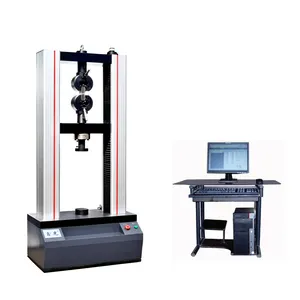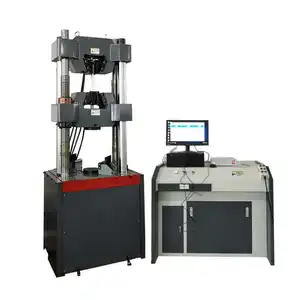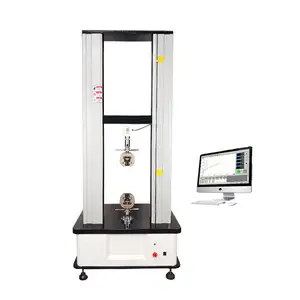(187 products available)


































































































































































































Vertical tensile testing machines are essential instruments in the field of material testing, providing precise measurements of tensile strength, elongation, and deformation of various materials. These machines are pivotal for quality control, research and development, and compliance with international standards in industries ranging from textiles to metals and plastics.
There are several types of vertical tensile testers, each designed to meet specific industry requirements. These include single-column testers for lightweight materials and dual-column machines for high-strength applications. The versatility of these machines allows for a wide range of applications, from testing the tensile strength of cables and wires to assessing the durability of fabrics and composites.
A vertical tensile strength tester is typically constructed from robust materials like steel and aluminum, ensuring durability and stability during testing. Advanced models come equipped with features such as digital control systems, automatic data capture, and customizable test methods. These features enable precise control and repeatability, which are crucial for accurate testing outcomes.
Modern vertical tensile testing equipment offers numerous advantages, including enhanced accuracy and efficiency. The integration of computerized systems allows for real-time monitoring and analysis, leading to faster decision-making in production and quality assurance processes. Additionally, the adaptability to various materials and standards makes these machines an invaluable asset across multiple sectors.
Selecting the appropriate vertical tensile test machine involves considering factors such as load capacity, test speed range, and data analysis requirements. It is crucial to choose a machine that not only meets the current testing needs but is also capable of adapting to future materials and testing protocols.
Reliability in measurements is paramount, and a vertical tensile tester is designed to deliver consistent and reliable test results. Regular calibration and maintenance are essential to ensure the longevity and accuracy of the equipment, which, in turn, supports the integrity of the testing process and the quality of the final product.